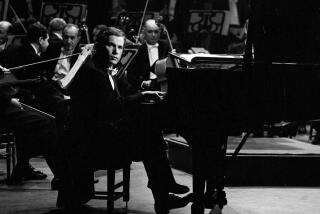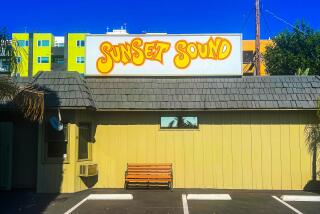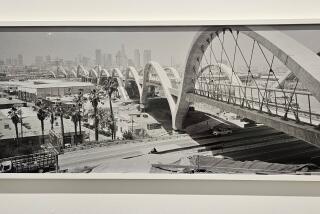Jonas Salk’s recordings will be heard after 50 years, thanks to UC San Diego project
Jonas Salk didn’t always have time to capture his thoughts on the yellow legal pads he kept within arm’s reach.
So he spent hour after hour talking into an audio recorder when he was developing the world’s first effective polio vaccine and creating the now-famous research institute in La Jolla that bears his name.
Most of those recordings haven’t been heard in at least 50 years. But that will soon change. UC San Diego is having digitized more than 170 hours of recordings that were made on an audograph, a clunky device that became obsolete long ago.
The recordings are part of the nearly 1,000 boxes of papers, media and photographs that the university maintains on Salk’s life and work.
“It is one of the most significant collections we hold, and now we can use a newer technology to make the content available for the first time in at least 50 years,” said Lynda Claassen, director of the Mandeville Special Collections at UC San Diego’s Geisel Library.
“The hope is that it will be used by scholars to create new history, and maybe new science.”
Some of the recordings eventually will be made accessible to the public.
Salk began dictating the recordings in 1949, three years after the Gray Manufacturing Co. introduced the audograph.
“It recorded sound by pressing grooves into soft vinyl discs,” the Museum of Obsolete Media says on its website. The recordings “were thin plastic discs, recorded from the inside to the outside, the opposite of conventional phonograph discs.”
The university has a machine to play the recordings that Salk made from 1949 to 1967. But, Claassen said, using it could destroy the discs. So they’ve simply been kept in environmentally controlled storage.
Salk, who had trouble sleeping, would write his thoughts on legal pads — musings that became known as his “night notes.” At about daylight, he often used the audograph.
“The best time for me to discover what is going on in my life and in my mind is when I wake up,” Salk said in one of his papers held at UC San Diego.
The digitization of the recordings will begin over the summer and the university will begin getting them back in September.
“There could be some gems on those recordings. My father used the machine to dictate his thoughts about things like journal articles and polio and things he was learning,” said son Peter Salk.
“It will be a very intimate thing to hear.”
This project is also personal to Claassen, who knew Salk from 1984 until his death in 1995.
“This has been an ongoing process,” Claassen said. “We didn’t get everything at once. Things came in over time, including the audographs. The family really cares about their father’s accomplishments and legacy. So do I.
“It’ll be good to hear his voice again on those recordings.”
gary.robbins@sduniontribune.com
Robbins writes for the San Diego Union-Tribune.
More to Read
Start your day right
Sign up for Essential California for news, features and recommendations from the L.A. Times and beyond in your inbox six days a week.
You may occasionally receive promotional content from the Los Angeles Times.






